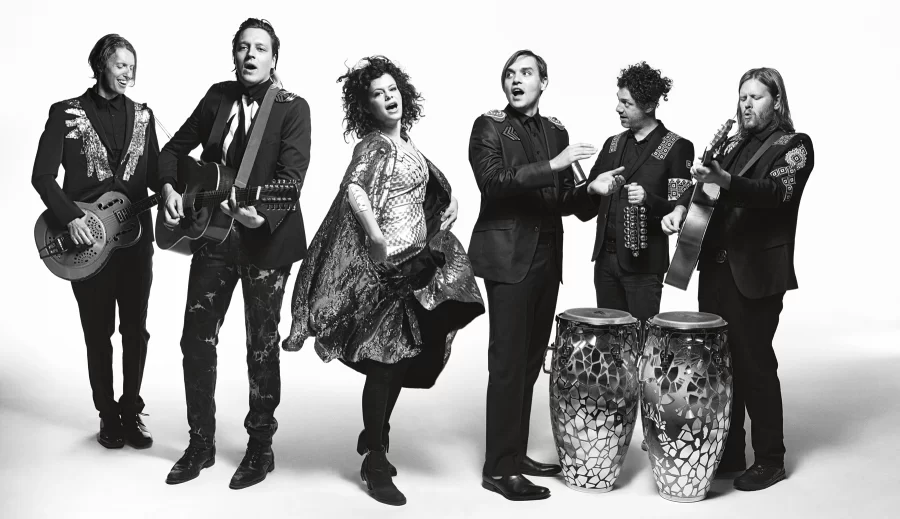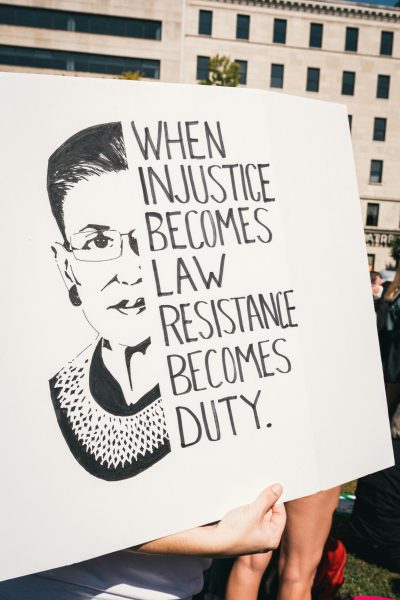Arcade Fire Singer Faces Sexual Misconduct Allegations
From the clubs of Montreal to stadiums across the world, Arcade Fire has become one of the most beloved indie rock acts of the 21st century. Led by husband-and-wife duo Regine Chassagne and Win Butler, this group of multi-instrumentalists have received widespread acclaim since the release of their debut album “Funeral” in 2004. Over the years, the band also became known for their philanthropy, raising millions of dollars in aid to Haiti (Montreal Gazette). They were titans in their field. They seemed untouchable. Yet slowly, the fabric of Arcade Fire’s success began to unravel.
It all began with the departure of longtime member Will Butler. The younger brother of lead singer Win, Will Butler broke the news in March, shortly after the announcement of a new album, WE. Despite this shakeup, the band charged ahead, releasing the album in May and announcing dates for a world tour that summer.
Three days before the tour began, a Pitchfork article went viral: “Arcade Fire Front man Accused of Sexual Misconduct by Multiple Women; Front man Responds.” In a detailed investigation culminating months of interviews and screenshots of text messages, three women claim that Win Butler made inappropriate sexual advances from 2015 through 2020. Additionally, another gender-fluid individual accused Butler of sexually assaulting them on two occasions. At the time of these alleged interactions, each were Arcade Fire fans between the ages of 18 and 23, while Butler was in his late thirties. Throughout each alleged instance, Butler is depicted as ignoring boundaries, misreading rejections as flirtatious behavior, and using his unchecked power as a celebrity to pressure victims into uncomfortable situations. Via crisis public relations expert Risa Heller, Butler admitted to sexual relationships with each of the accusers, but claimed they were consensual. He justified his behavior by saying he was struggling with mental health issues, alcohol abuse, and grief at the time of these encounters. Regine Chassagne, his wife and band mate, also denied the accusations, saying, “He has lost his way and he has found his way back.”
Fans took to the internet to express shock, disappointment, and defense of Win Butler. Radio stations in the US and Canada pulled Arcade Fire songs out of rotation. And yet Arcade Fire chose to carry on with their tour, playing their first show on August 30th in Dublin, Ireland.
While some decided to boycott the concert, the band played to a near-capacity arena that night. Onstage, they made no mention of the allegations. Neither did opening act Feist, instead pledging to donate the proceeds of her merchandise to Women’s Aid, an Irish charity supporting victims of domestic abuse. At the end of their set, Arcade Fire walked off to Ben E. King’s “Stand by Me” to rapturous applause.
Two days later, Leslie Feist left the tour. In a lengthy statement, she wrote, “It can be a lonely road to make sense of ill treatment. I can’t solve that by quitting, and I can’t solve it by staying. But I can’t continue.” This statement prompted positive and negative responses alike, some “liked” on Instagram by none other than Will Butler. Hours later, Arcade Fire responded to the statement: “We are very sorry to see Leslie go home, but completely understand and respect her decision.”
In the weeks since, the band has continued on their world tour, gearing up for dates in the U.S. with artist Beck. The situation has led to discussions about the dark side of rock culture and what a post-Me Too world looks like. While much of Arcade Fire’s next steps are unknown, one thing is for sure: nothing will be the same.





